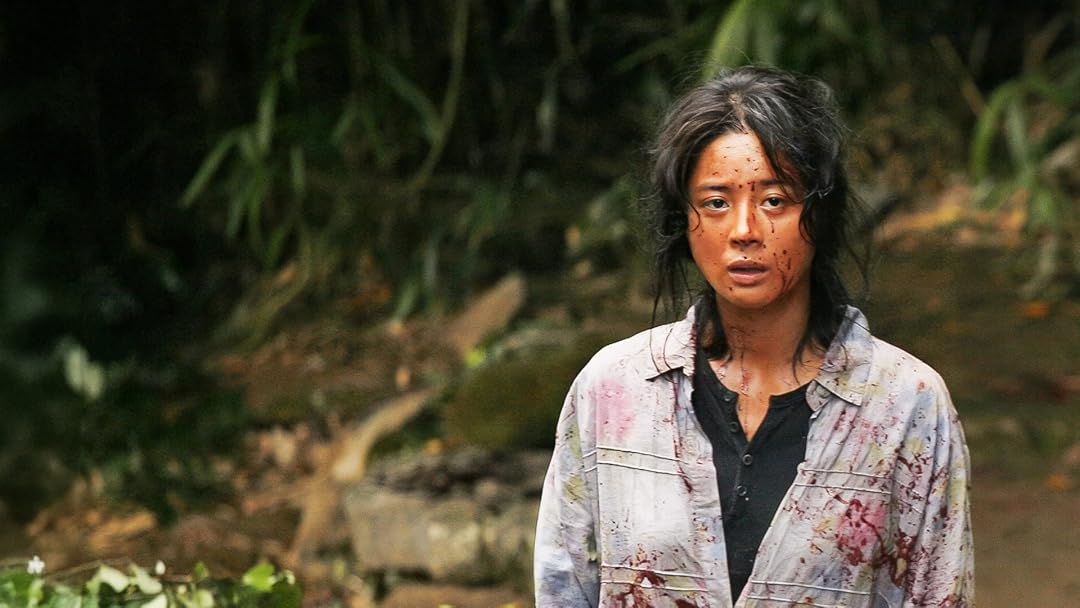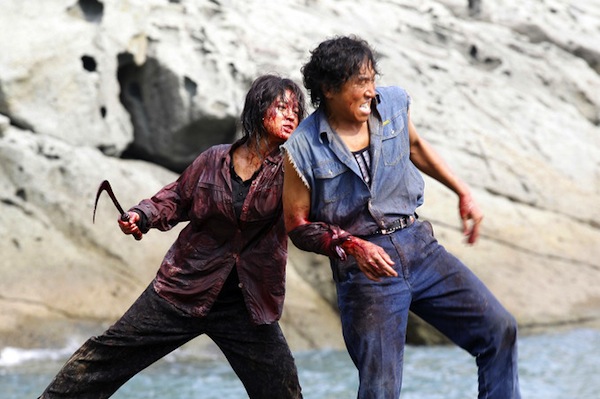Bedevilled
Bedevilled is a powerful and unsettling South Korean psychological horror-thriller directed by Jang Cheol-soo in his feature debut. Set against the haunting backdrop of the remote island Moo-do, the film tells the story of Hae-won, a jaded and emotionally detached woman working in a Seoul bank. After witnessing a violent crime and refusing to intervene, she takes a leave of absence and travels to Moo-do, a place she had visited in childhood. There, she reunites with her old friend, Kim Bok-nam, a woman trapped in a life of relentless abuse at the hands of her husband and the island’s equally complicit villagers.
As Hae-won stays on the island, she remains largely indifferent to Bok-nam’s suffering. The film slowly builds a heavy atmosphere of dread, as the tension between Hae-won’s passivity and Bok-nam’s escalating desperation grows. After a tragic and horrifying event involving Bok-nam’s young daughter, the narrative takes a sharp turn. Driven by grief, betrayal, and rage, Bok-nam snaps—unleashing a wave of brutal vengeance on those who tormented her. What begins as a bleak drama transforms into a visceral, emotionally charged tale of retribution.

What makes Bedevilled stand out is its raw emotional depth and its critique of social and gender-based violence. The film does not rely on jump scares or supernatural elements. Instead, it focuses on real-world horrors: isolation, misogyny, communal cruelty, and the silent complicity of bystanders. The island becomes a microcosm for systemic oppression, and Bok-nam’s transformation from victim to avenger is both devastating and cathartic.
Seo Young-hee’s performance as Bok-nam is central to the film’s impact. Her portrayal is heartbreaking, intense, and unforgettable—moving seamlessly from fragile vulnerability to ferocious determination. Ji Sung-won, as Hae-won, effectively captures a character whose emotional detachment is challenged by the consequences of her inaction. The contrast between these two women creates a powerful dynamic that propels the story forward.

The cinematography captures the desolate beauty of the island, using quiet, observational shots to emphasize both the natural serenity and the lurking menace within the community. The pacing is deliberate, allowing the audience to feel the weight of each moment, each cruelty, and each silent failure to intervene. When the violence does erupt, it is unflinching and deeply unsettling—but never gratuitous.
Critically acclaimed, Bedevilled received multiple awards, including Best New Director and Best Actress at major Korean film festivals. It was also screened internationally, where it gained praise for its storytelling and social commentary. With a modest budget, the film achieved strong domestic box office performance and has since gained a cult following among fans of psychological and socially-driven horror.

In conclusion, Bedevilled is not merely a horror film—it is a raw and emotionally complex exploration of trauma, injustice, and the breaking point of human endurance. It challenges viewers to confront the consequences of apathy and the hidden violence in seemingly quiet places. Deeply affecting and masterfully executed, Bedevilled is a standout entry in modern Korean cinema and a must-watch for those drawn to dark, meaningful storytelling.


